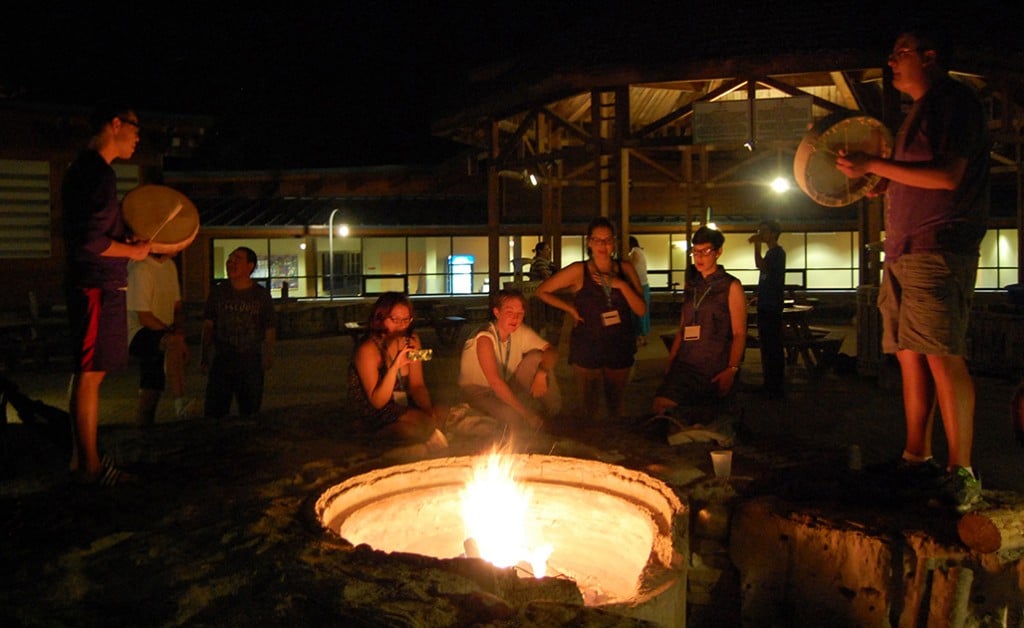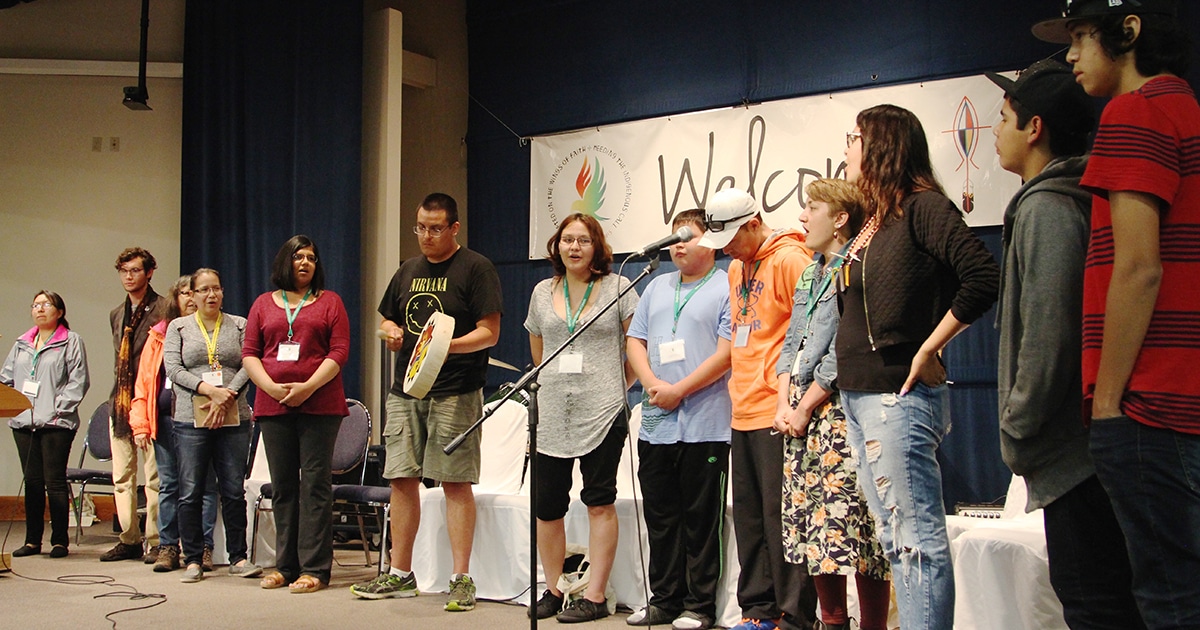“For I reckon that the sufferings of this present time are not worthy to be compared with the glory which shall be revealed in us.”—Romans 8:18
The tribulations of the past and present intermingled with hope for the future at Sacred Circle on Thursday, Aug. 19, as a new generation of Indigenous Anglicans stepped forward to address the ongoing issues faced by Indigenous communities across Canada.
While naturally focused on the more acute nature of these crises in Indigenous communities due to the impacts of residential schools and other colonial policies, such challenges are by no means restricted to Canada’s Indigenous population—underscoring the shared interests between Indigenous and non-Indigenous people in building a better future.
The severity of conditions in many Indigenous communities was laid bare by the focus of the morning’s presentations—suicide prevention. A number of pamphlets available at the back of the room outlined the stark statistics on high rates of suicide among Aboriginal youth compared to non-Aboriginal youth.
One of the speakers discussing successful models of suicide prevention was Dorothy Russell-Patterson from the Anglican Parishes of Six Nations. She recounted how her cousin took his own life and her own attempted suicide before finding her way to healing.
Ms. Russell-Patterson highlighted the importance of love, faith in Jesus and Indigenous traditions in helping create the kind of bonds that prevent suicide. She also discussed the need to organize events to share gifts and strengths, particularly on Sept. 10, World Suicide Prevention Day.
Illustrating the link between suicide prevention and wider efforts at cultural restoration and social change, she noted, “We need healing for our people … I thank God for the people that are dealing with issues such as missing and murdered Indigenous women.”
Those issues came to the fore at the youth and young adult presentation during the afternoon, in which young Sacred Circle participants answered questions on some of the most pressing challenges.
Calgary participant Jeffrey Waterchief pointed to continued discrimination against Indigenous people in the legal system, schools and colleges.
“Somebody has to speak up for them,” he said, urging youth to get involved by networking with those most affected—the wrongly imprisoned and those turned away from institutions due to their Indigenous background, as well young people and mistreated members of the general population.
While many may not have an interest in Christianity or the church, he added, “If no one can be there for them, the church has to be.”
Responding to a query about the importance of education on sexual violence, sexual harassment and suicide connected to sexual violence, Leigh Kern pointed to sacredness of the body as described in the Scriptures, which is too often violated—particularly for women, people of colour and Indigenous people.
“We’re living in this time where we’ve inherited this legacy of violence which has been used by colonizers invading Turtle Island,” Leigh said.
Besides the self-harm and feelings of shame that often come from sexual abuse, so prevalent in residential schools, she noted the disregard for missing and murdered Indigenous women by law enforcement and government.
“We need to have better education on sex, sexuality and consent, so youth can de-colonize their bodies, reclaim sexuality … so we don’t see each other as objects to be exploited and used, but as whole, unique beings created by God.”

Hailing from the diocese of Moosonee, Melanie Wesley-Hardisty discussed the need to revitalize church structures in a way that would appeal to Indigenous youth through greater openness, reclaiming Indigenous culture and traditions and further integrating them into the church.
“I find that [Indigenous traditions] can also be a healing for our people, especially to finally heal and move on from the residential school era and not be stuck looking back,” Melanie said. “I find that for so many years, our people have been really brainwashed and made to believe that our culture and our traditions were made out to be evil … There’s still that belief today.”
Addressing the urgency of environmental problems, Ariana Dorie, 18, spoke of the harm caused to her small rural community in southern Manitoba by encroaching companies, such as a nearby paper mill, that had despoiled the local environment by dumping waste on the ground or into the lake.
“Some fishermen have recorded that if you cut open a fish, you see cancerous lumps,” Ariana lamented. “Our fish are sick. Our land is sick.”
She pointed to the need to raise greater awareness of the stakes involved.
“Things need to change in my community,” she added. “And not just in my community, but for surrounding communities in Manitoba and all over Canada.”
Following the discussion, the youth performed The Women’s Warrior Song, once more channelling the energy and spirit of participants through the power of music.
Such inspiration is necessary to address the enormity of the challenges ahead. Yet the eloquence of the young speakers on the stage that day, and the warm reception they received from all participants in the Sacred Circle, provided much ground for optimism.
Interested in keeping up-to-date on news, opinion, events and resources from the Anglican Church of Canada? Sign up for our email alerts .

